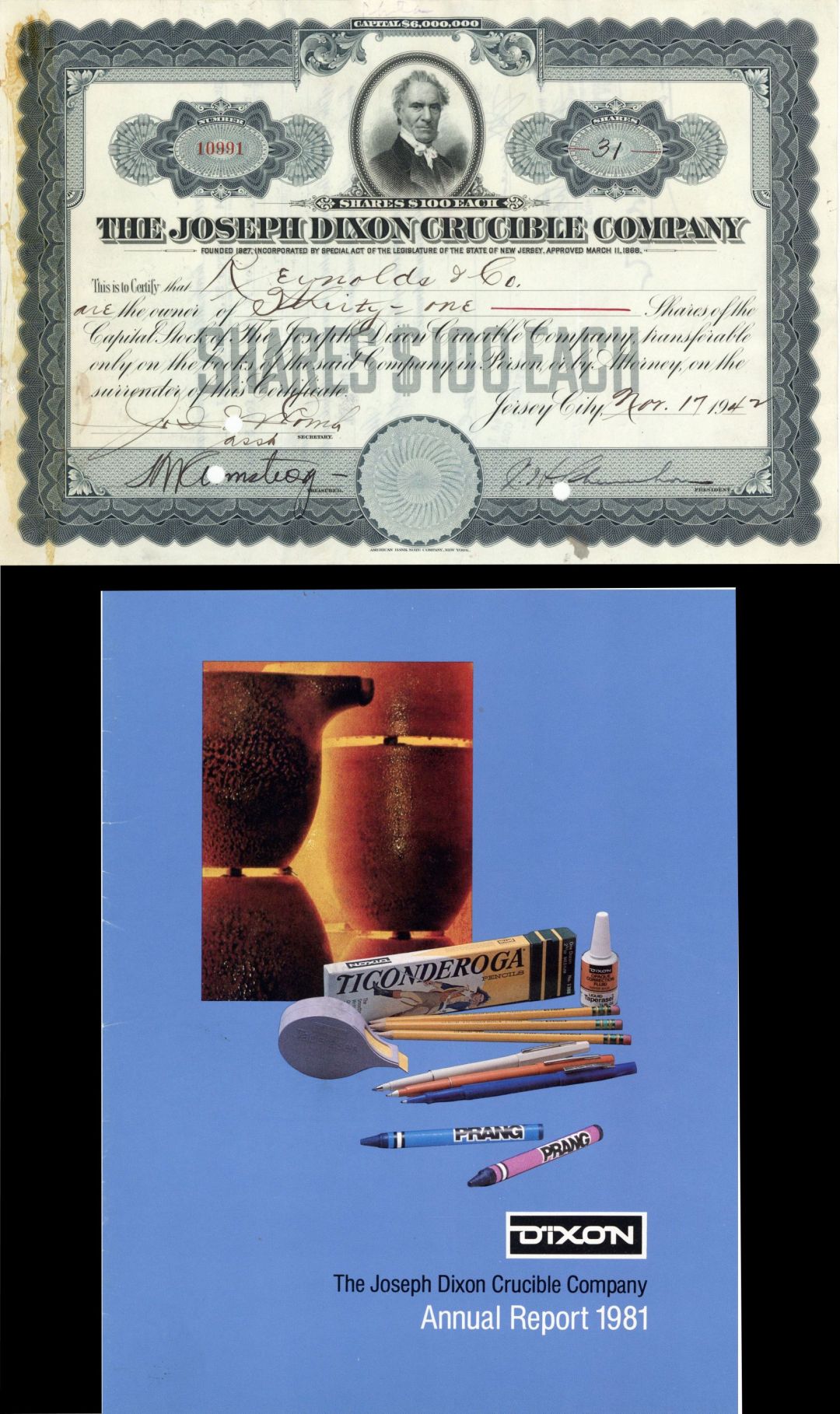Joseph Dixon Crucible Co. - 1942 Stock Certificate and Annual Report
Inv# GS6205A StockStock printed by American Bank Note Company, New York and Annual Report booklet. The Pair. Some glue residue at left and small stain in bottom margin.
Joseph Dixon (1799–1869) was an inventor, entrepreneur and the founder of what became the Dixon Ticonderoga Company, a well-known manufacturer of pencils in the United States.
His fascination with new technologies led to many innovations such as a mirror for a camera that was the forerunner of the viewfinder, a patented double-crank steam engine, and a method of printing banknotes to thwart counterfeiters. Most notably, Dixon manufactured the first wood and graphite pencil in the country.
Among his associates were such American inventors as Robert Fulton, Samuel Morse, and Alexander Graham Bell, and politician/business partner Orestes Cleveland.
In 1827, Joseph Dixon began his business in Salem, Massachusetts and, with his son, was involved with the Tantiusques graphite mine in Sturbridge, Massachusetts. Dixon discovered the merits of graphite as a stove polish and an additive in lubricants, foundry facings, brake linings, oil-less bearings, and non-corrosive paints.
He also refined the use of graphite crucibles, refractory vessels used for melting metallic minerals. A heat-resistant graphite crucible he invented was widely used in the production of iron and steel during the Mexican–American War. This invention's success led Dixon to build a new mill in what is now the Van Vorst Park neighborhood of historic Downtown Jersey City, New Jersey in 1847. The Dixon Mills complex has subsequently become residences.
During the 1860s, people typically wrote with quill pens and ink even though Dixon introduced graphite pencils in 1829. But the American Civil War created a demand for a dry, clean, portable writing instrument and led to the mass production of pencils. At the time of Dixon's death in 1869, the Joseph Dixon Crucible Company was the largest manufacturer of graphite products in the world. By 1870, The Joseph Dixon Crucible Company was the world's largest dealer and consumer of graphite. By 1872 the Dixon company was making 86,000 pencils a day.
The Joseph Dixon Crucible Company continued to prosper throughout the 20th century by growing through a series of mergers and acquisitions. In 1982, the Joseph Dixon Crucible Company merged with the Bryn Mawr Corporation, a Pennsylvania transportation and real estate company with operations dating back to 1795. Together, these companies formed the Dixon Ticonderoga Company, named after Dixon and its oldest brand-name pencil.
A stock certificate is issued by businesses, usually companies. A stock is part of the permanent finance of a business. Normally, they are never repaid, and the investor can recover his/her money only by selling to another investor. Most stocks, or also called shares, earn dividends, at the business's discretion, depending on how well it has traded. A stockholder or shareholder is a part-owner of the business that issued the stock certificates.











Ebay ID: labarre_galleries